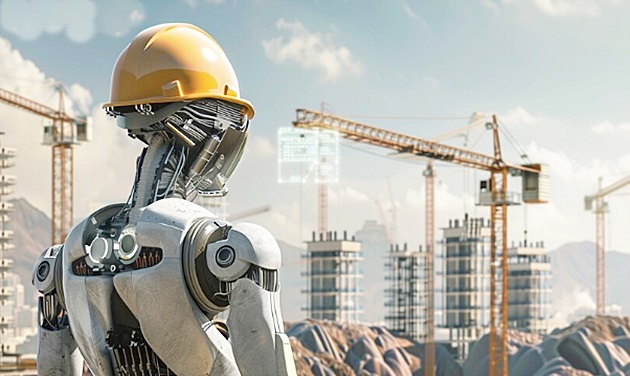
AI to Transform Real Estate Industry – But Trust and Human Relationships Remain Irreplaceable, Says Colliers
Artificial Intelligence (AI) promises to transform the real estate industry, yet it cannot replace trust, empathy, and human-driven decisions, according to a Colliers survey conducted during the 2024–2025 CoreNet Global Summits, which gathered insights from 422 real estate professionals across EMEA, North America, and APAC.
While over 70% of companies anticipate AI will have a major operational impact, only 2% believe it will significantly reduce workforce numbers.
AI Adoption Rising – Especially in APAC
According to the Colliers study:
- 73% of respondents from EMEA and North America and
- 78% from Asia-Pacific expect AI to have a significant or even revolutionary impact on real estate.
Top AI use cases include:
- Smart location mapping (55%)
- Facilities management (49%)
- Lease administration (46%)
- Portfolio strategy (45%)
In Asia-Pacific, companies are already integrating AI tools such as EcoStruxure Building Advisor, which uses machine learning algorithms to optimize building performance, anticipate maintenance issues, and reduce operating costs.
“AI-powered systems are improving energy performance, enhancing occupant comfort, and streamlining operations—especially in smart buildings across APAC,” Colliers noted.
Real Estate Remains a Human-Centric Industry
Despite AI’s disruptive potential, its impact on employment appears to be limited, at least for now:
- 57% of EMEA respondents,
- 58% in North America, and
- 47% in APAC believe AI won’t significantly affect jobs.
Only 2% foresee substantial workforce reductions due to AI. According to Colliers, this is because real estate decisions are inherently human, rooted in relationships, trust, and contextual nuance.
“Choosing a workspace, relocating a team, or redesigning how employees interact with the office involves more than square footage or efficiency metrics,” experts explain. “These are emotionally and culturally loaded decisions that require empathy, discernment, and leadership.”
While AI can optimize space usage or automate lease tracking, it cannot anticipate human aspirations or fears—nor can it build long-term trust or replace emotionally intelligent leadership.
Risks and Responsible Adoption
AI adoption isn’t without concerns. According to the survey:
- 56% of North American respondents and
- 49% of those in EMEA view AI as a moderate to high risk to the sector.
Key concerns include:
- Data privacy
- Implementation complexity
- Impact on employees
“Success will not necessarily go to the fastest AI adopters,” Colliers emphasizes, “but to those who integrate AI responsibly, aligning it with a human-centered strategy.”
The future belongs to companies that balance technological innovation with transparency, ethical governance, and thoughtful risk management—ensuring that AI augments, rather than replaces, human judgment. (Photo: Freepik)




